Flexible Packaging Products: The Complete Guide 2023
In today's fast-paced and ever-evolving consumer market, businesses are constantly seeking innovative packaging solutions to meet their diverse needs.
Flexible packaging has emerged as a prominent choice due to its versatility, cost-effectiveness, and sustainability.
This comprehensive guide aims to provide an objective analysis of flexible packaging products, encompassing various materials and their applications.
Additionally, it explores the wide-ranging benefits of adopting flexible packaging for different businesses.
By adhering to strict academic writing conventions and eliminating personal pronouns, this article presents an impartial overview of the subject matter.
1.What Is Flexible Packaging?
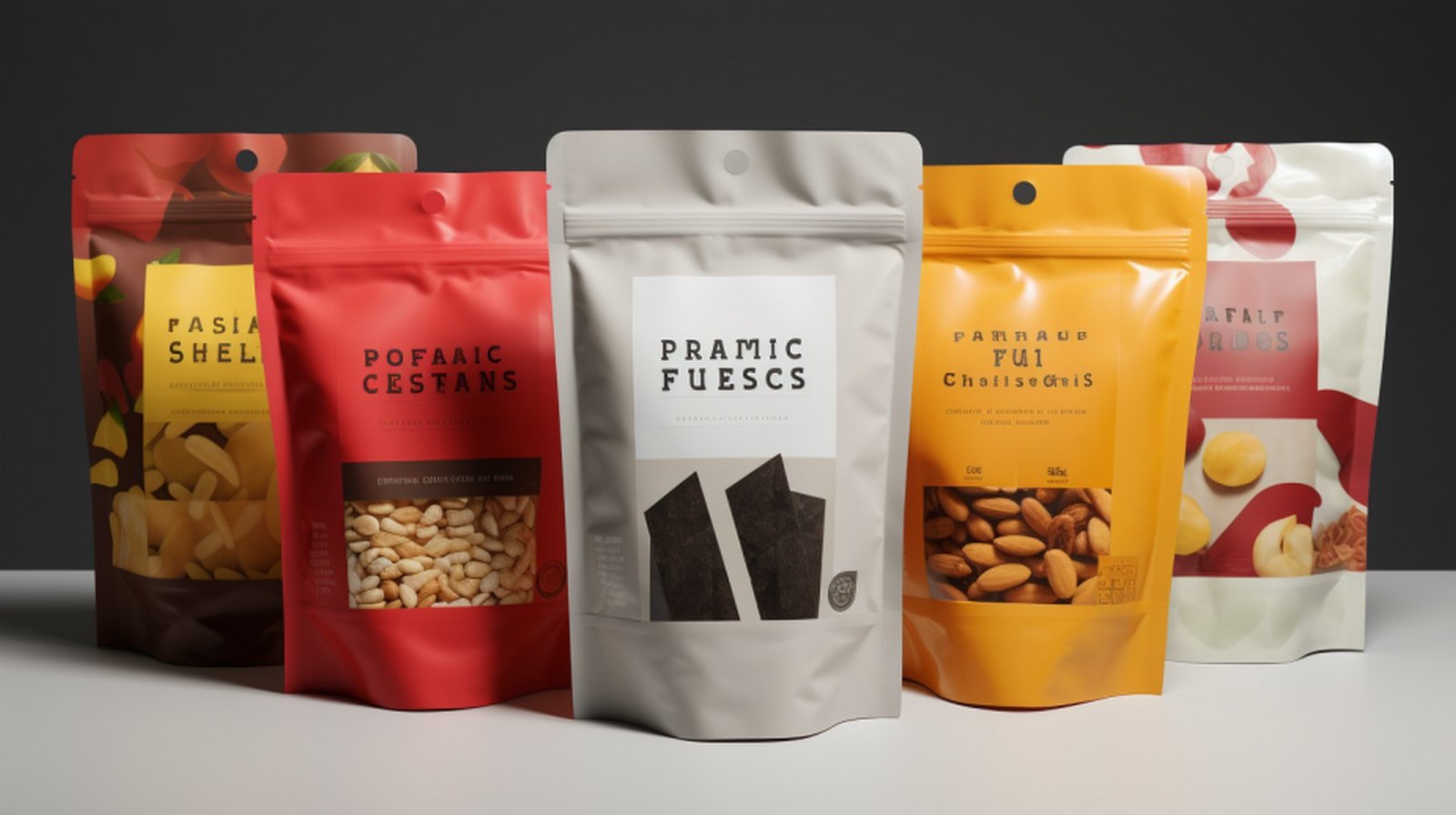
Flexible packaging is a type of packaging that can be easily molded and shaped to accommodate various product sizes and shapes. It is made from materials such as plastics, films, foils, and laminates that offer flexibility and durability. The primary advantage of flexible packaging lies in its ability to conform to the shape of the product it contains, providing a secure and protective barrier against external elements. This adaptability makes it suitable for a wide range of applications across industries, including food and beverages, pharmaceuticals, personal care products, and consumer goods.
The use of flexible packaging has gained popularity due to several key factors. Firstly, it offers cost-effective solutions for manufacturers as it requires fewer raw materials compared to rigid packaging alternatives. Additionally, its lightweight nature reduces transportation costs and carbon footprint. Furthermore, flexible packaging provides enhanced shelf appeal through innovative designs such as pouches with spouts or resealable closures.
2.What Is Flexible Plastic Packaging?
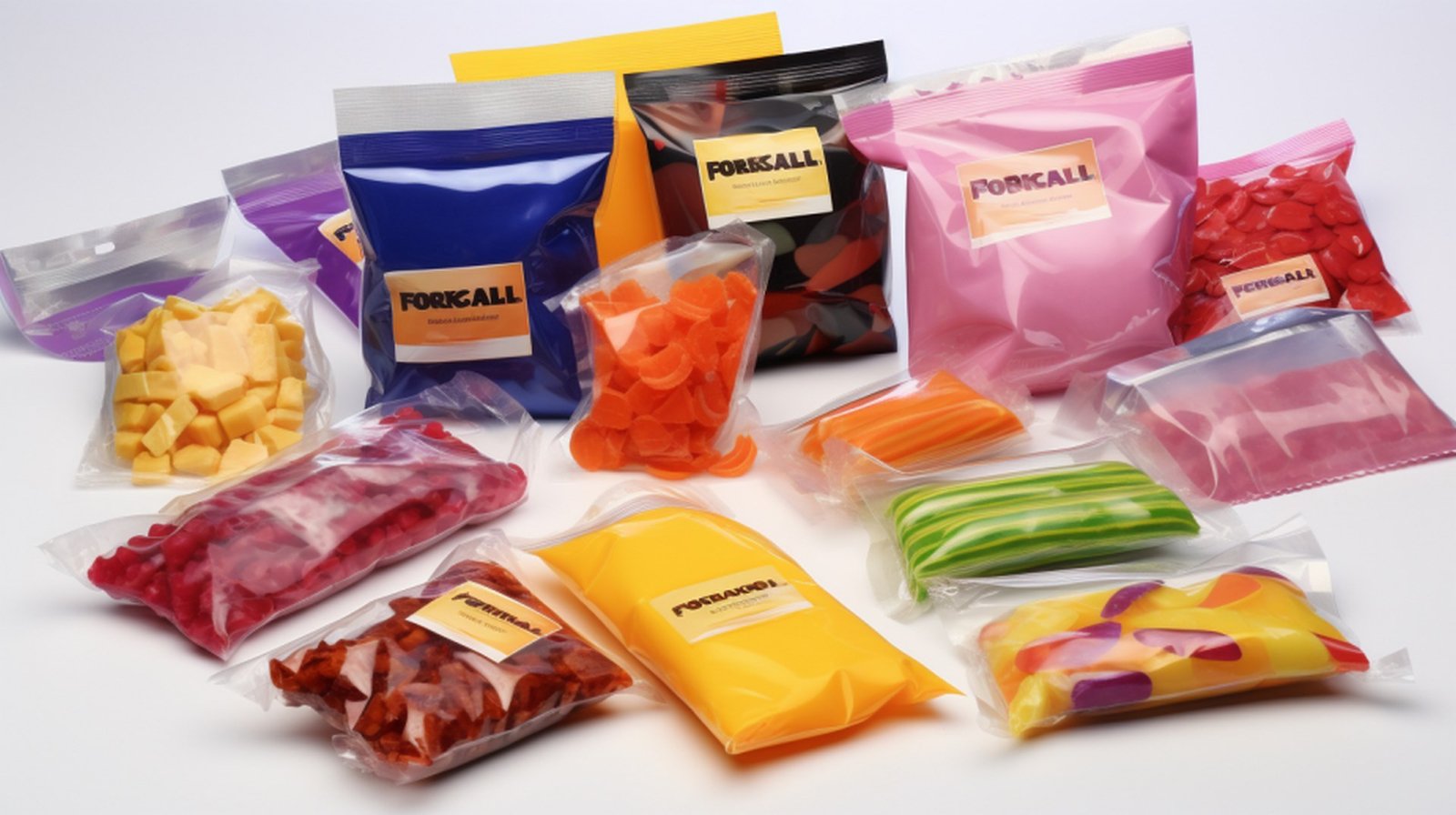
Diverse in its composition and applications, plastic packaging is a versatile form of material used for containment and protection purposes. Plastic packaging refers to the use of synthetic polymers, such as polyethylene (PE), polypropylene (PP), polyethylene terephthalate (PET), and polystyrene (PS), to create flexible packaging products. These materials are chosen due to their unique properties that make them suitable for various packaging needs.
For instance, PE is commonly used for food packaging due to its moisture resistance and flexibility. PP, on the other hand, offers excellent heat resistance and durability, making it suitable for microwaveable food containers. PET is known for its transparency and strength, making it ideal for beverage bottles. Lastly, PS is often used as a protective layer or cushioning material in product packaging.
Plastic packaging can take many forms such as bags, pouches, wraps, films, laminates, and more. Each type of plastic packaging has specific properties that cater to different requirements. Understanding these different types of flexible plastic packaging materials will help businesses choose the appropriate option based on factors like product compatibility, barrier properties needed (such as oxygen or moisture resistance), ease of use in terms of sealing or opening mechanisms, and cost-effectiveness.
In the subsequent section about 'the types of flexible packaging materials', we will delve into each category in detail to provide a comprehensive understanding of the options available in the market today.
3.Types Of Flexible Packaging Materials
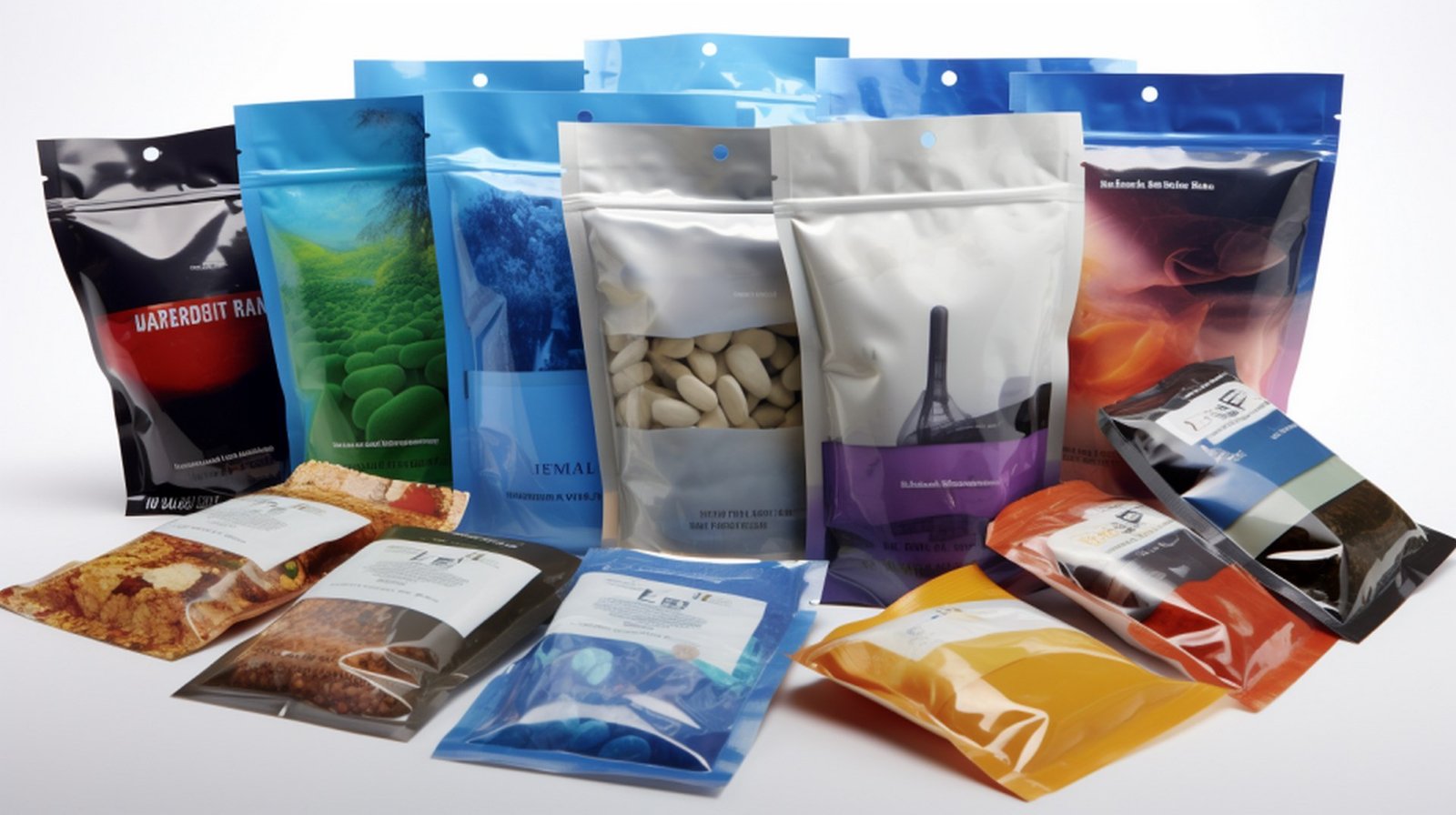
As an eco-friendly packaging manufacturer, you might consider using a variety of sustainable materials for flexible packaging. Here are some types of flexible packaging materials that prioritize environmental responsibility:
Recycled Paper: Recycled paper or cardboard is an eco-friendly choice for flexible packaging, especially for items like paper bags and boxes.
Biodegradable Plastics: These plastics break down naturally into non-toxic components, reducing their environmental impact. Examples include biodegradable films and bags made from materials like PLA (polylactic acid).
Compostable Materials: Compostable materials, such as compostable films and bags, can degrade into nutrient-rich compost when disposed of properly.
Recycled Plastic: Using post-consumer recycled (PCR) plastic in flexible packaging helps reduce the demand for new plastic production.
Bio-Based Plastics: These plastics are made from renewable resources like cornstarch or sugarcane. They are considered more sustainable than traditional plastics.
Fabric and Textiles: Natural fibers like cotton, jute, or hemp can be used for flexible packaging, especially for products like reusable bags.
Metalized Films: These films are often used in food packaging. They are lightweight and offer good barrier properties to protect products.
Glassine: A smooth and glossy paper that is often used for packaging snacks, baked goods, or crafts. It is compostable and biodegradable.
Waxed Paper: Often used for food packaging, waxed paper is biodegradable and provides a moisture barrier.
Laminated Films: Combining different materials like paper and plastic to create a multi-layered film with specific properties, such as moisture resistance.
Cotton or Fabric Pouches: Reusable cotton or fabric pouches are sustainable options for packaging smaller items and can be customized with eco-friendly dyes.
Tyvek: A lightweight, durable, and recyclable material often used for mailing envelopes and other protective packaging.
When selecting flexible packaging materials, it's essential to consider factors like product compatibility, intended use, recyclability, and overall sustainability goals. By choosing the right materials, you can ensure that your eco packaging aligns with your environmental values and meets the needs of your customers.
4.Different Types Of Flexible Packaging Products
Various types of materials are used in the production of flexible packaging products, each with their own unique properties and characteristics. These materials play a crucial role in determining the functionality and performance of the final product. Table 1 provides an overview of three commonly used materials in flexible packaging along with their key properties.
Table 1: Types of Materials Used in Flexible Packaging
| Material | Key Properties |
| Polyethylene | Excellent flexibility and moisture resistance |
| Polyester | High tensile strength and dimensional stability |
| Aluminum foil | Barrier to light, oxygen, moisture, and microorganisms |
Polyethylene is one of the most widely used materials due to its excellent flexibility and moisture resistance. It is commonly found in applications such as food packaging and pouches. Polyester, on the other hand, offers high tensile strength and dimensional stability, making it suitable for products that require durability and shape retention. It is often used in stand-up pouches for snacks or liquid products. Additionally, aluminum foil acts as a barrier against light, oxygen, moisture, and microorganisms. This material is frequently utilized for pharmaceutical blister packs or wrappers for perishable goods.
Understanding the different types of materials used in flexible packaging allows manufacturers to select the most appropriate option based on their specific requirements. In turn, this choice directly impacts the benefits that flexible packaging can offer.
Flexible packaging is a versatile category that encompasses a wide range of products designed for various applications. Here are 10 different types of flexible packaging products:
- Stand-Up Pouches:These pouches have a flat bottom gusset that allows them to stand upright, making them ideal for packaging snacks, pet food, and liquids.
- Flat Pouches:Flat pouches are versatile and can be used for packaging items like coffee, dried fruits, spices, and cosmetics.
- Retort Pouches: Designed to withstand high-temperature processing, retort pouches are used for packaging ready-to-eat meals and canned goods.
- Zipper Bags: Resealable zipper bags are commonly used for packaging snacks, frozen foods, and other products that require convenient reclosure.
- Spout Pouches: These pouches feature a built-in spout and are suitable for packaging liquids, such as baby food, sauces, and beverages.
- Shrink Sleeves: Shrink sleeves are heat-sensitive labels that conform to the shape of a container. They are used for branding and labeling purposes.
- Flexible Films: These are roll stock materials used for creating custom pouches or bags through form-fill-seal machines. They are versatile and can be adapted for various products.
- Blister Packs: Blister packs use a combination of plastic and foil to create secure packaging for pharmaceuticals, vitamins, and small consumer goods.
- Vacuum Pouches: Designed for vacuum sealing, these pouches are commonly used for packaging meat, cheese, and other perishable products.
- Die-Cut Lids: These are used for sealing cups and trays containing yogurt, condiments, and other single-serve food items.
Each of these flexible packaging products offers unique advantages in terms of product protection, convenience, and branding. The choice of packaging type depends on the specific needs of the product and the preferences of the manufacturer.
5.The Benefits Of Flexible Packaging Products
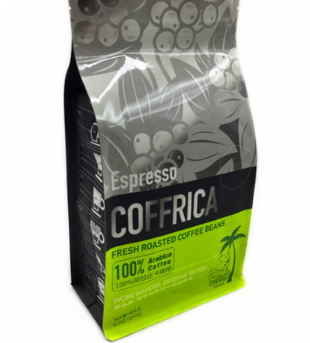
Flexible packaging is a dynamic and eco-friendly solution that revolutionizes the way products are stored, carried, and enjoyed. In this discussion, we delve into its remarkable benefits.
Easy to Store: Flexible packaging, with its compact and space-saving design, is highly efficient for both consumers and retailers. It occupies less shelf space and is stackable, allowing for maximized storage capacity. The flexibility of these packages ensures they conform to various storage spaces, making organization effortless and reducing the need for excess storage infrastructure. This ease of storage not only benefits businesses by optimizing inventory management but also enhances convenience for consumers who may have limited storage space at home.
Extends Product Life: Flexible packaging excels at preserving product freshness and quality. Its barrier properties protect contents from light, moisture, and oxygen, which can all contribute to product degradation. By creating a protective shield, flexible packaging extends the shelf life of food and perishable items, reducing food waste and saving consumers money. This feature is especially critical for products like snacks, coffee, and pet food, where maintaining freshness is paramount for customer satisfaction and brand loyalty.
Easy to Reseal: Resealability is a key advantage of flexible packaging, enhancing convenience and maintaining product integrity. Features like zipper closures and resealable flaps allow consumers to open and close packages with ease, preserving freshness and preventing spills or waste. This resealable functionality is particularly valuable for products like snacks, frozen foods, and spices, where portion control and maintaining flavor are priorities. It ensures that consumers can enjoy the product over multiple sittings, reducing the rush to consume it all at once.
Easy to Carry: Flexible packaging is designed with portability in mind, making it effortless for consumers to carry their favorite products on the go. Whether it's a lightweight stand-up pouch, a convenient spout pouch, or a resealable bag, these packages are easy to hold, fit comfortably in bags or pockets, and minimize the risk of spills or leaks. This feature is especially appreciated by busy individuals and families who need practical packaging solutions that align with their active lifestyles.
Easy to Open: Flexible packaging prioritizes user-friendliness when it comes to opening. Tear notches, easy-pull tabs, or perforated edges are commonly integrated into these packages, ensuring effortless and frustration-free access to the product inside. This ease of opening is particularly important for products such as snacks, where consumers want quick access without the need for scissors or other tools. It enhances the overall user experience, making the product more appealing and convenient, which can contribute to brand loyalty.
Considering these benefits, various businesses across different sectors can benefit from adopting flexible packaging solutions that align with their specific needs. From food manufacturers looking to preserve freshness and extend shelf life to e-commerce companies seeking efficient shipping options, businesses across industries stand to gain from leveraging the advantages offered by flexible packaging products without compromising on quality or sustainability considerations.
6.What Industries Can Benefit From Flexible Packaging?
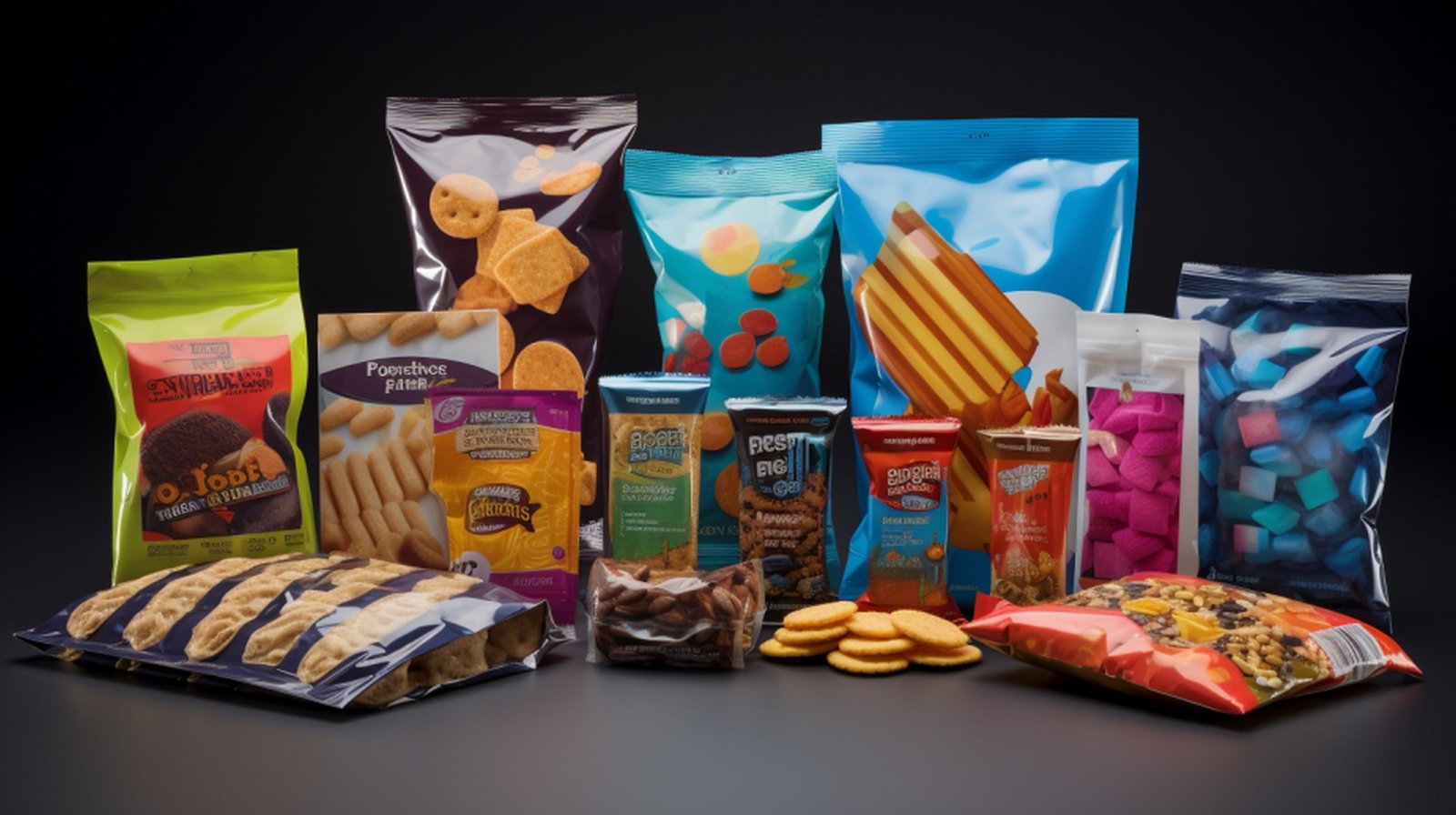
Here are 5 industries that can benefit from flexible packaging:
Food and Beverage: Ideal for snacks, beverages, and perishable goods due to its freshness preservation and convenience.
Pharmaceuticals and Healthcare: Ensures product integrity and protection for medicines and medical devices.
Personal Care and Cosmetics: Offers customizable packaging options for beauty and personal care products.
Pet Food: Provides durability and moisture resistance for pet food packaging.
Agriculture and Agribusiness: Efficiently packages items like seeds, fertilizers, and crop protection products.
7.How to Choose The Ideal Flexible Packaging?
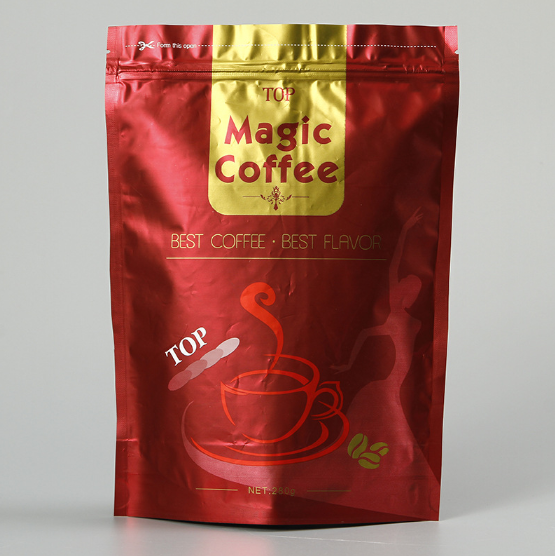
When selecting the most suitable flexible packaging solution, it is important for businesses to consider factors such as product characteristics, target market preferences, and environmental impact.
Product characteristics play a crucial role in determining the type of flexible packaging that should be used. Factors such as the size, shape, and fragility of the product need to be taken into account to ensure that the packaging provides adequate protection during storage and transportation.
Additionally, businesses need to consider the preferences of their target market. This includes factors such as convenience features (e.g., resealable zippers or spouts), visual appeal (e.g., vibrant colors or attractive designs), and ease of use.
Lastly, environmental impact should also be considered when choosing flexible packaging. Businesses should opt for materials that are recyclable or biodegradable to minimize their carbon footprint.
Transitioning into the subsequent section about 'flexible packaging at ecopacker,' this company specializes in providing sustainable flexible packaging solutions without compromising on quality or functionality.
In conclusion, with its ability to mold itself around products like a chameleon adapting to its surroundings, flexible packaging is the game-changer that modern businesses need. By embracing this innovative solution, companies can not only enhance their product presentation but also reduce costs and contribute towards environmental sustainability. So why settle for rigid alternatives when you can embrace the flexibility of this revolutionary packaging? Embrace change today and watch your business thrive with the limitless possibilities offered by flexible packaging.
Flexible Packaging At Ecopacker
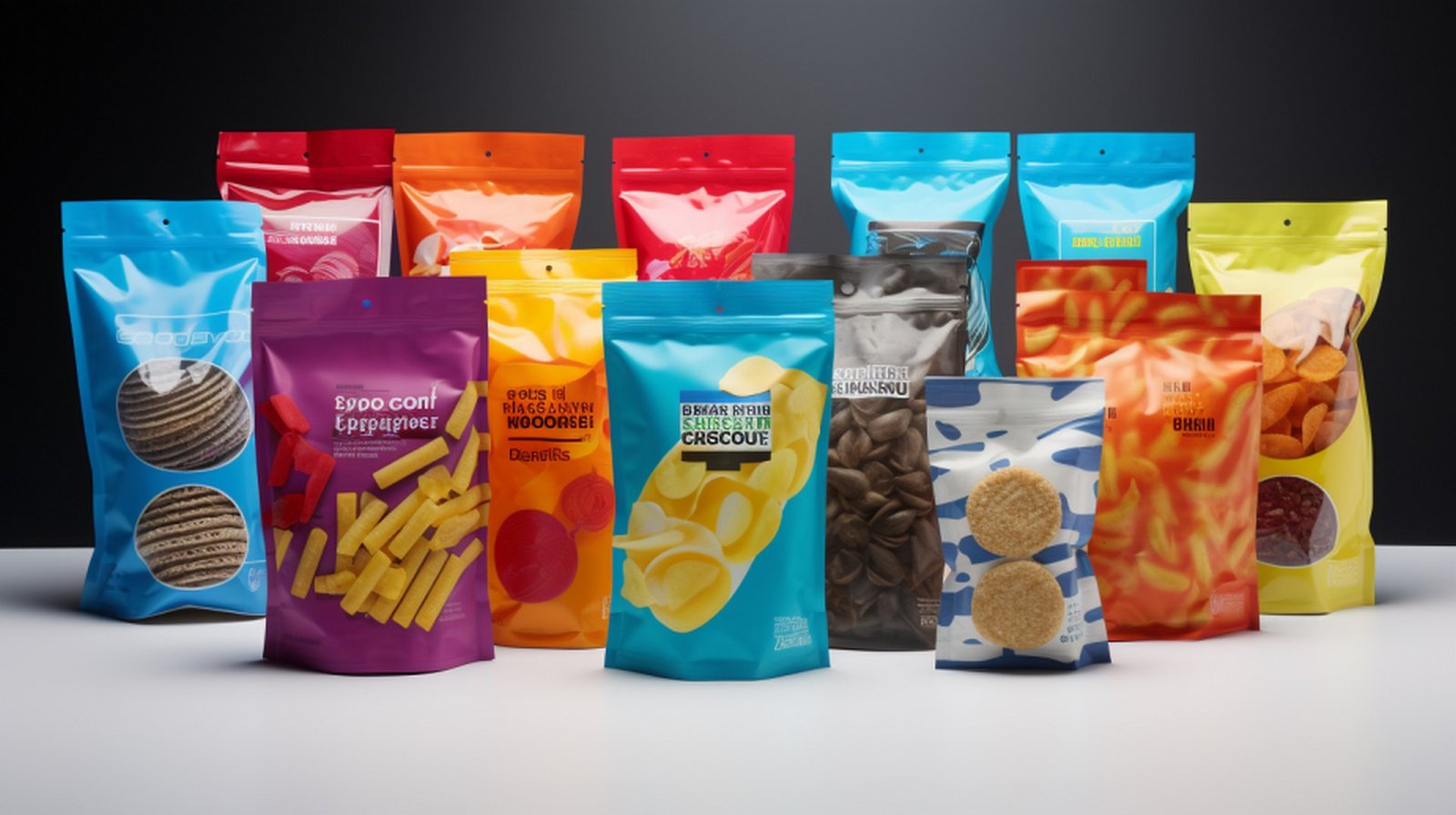
Ecopacker, a specialized company in sustainable packaging solutions, offers environmentally-friendly alternatives for businesses seeking high-quality and functional flexible packaging. With a focus on reducing environmental impact, Ecopacker provides a range of options that cater to various industries and product requirements.
Ecopacker's flexible packaging solutions are designed to meet the demands of businesses while minimizing their ecological footprint. Some key features of their offerings include:
- Material Selection:
- Ecopacker utilizes recyclable materials such as paper and bioplastics in their flexible packaging products.
- These materials are sourced from sustainable suppliers, ensuring responsible production practices.
- Customization Options:
- Ecopacker understands the importance of branding and offers customizable designs for their flexible packaging.
- Businesses can choose from a variety of sizes, shapes, colors, and finishes to create packaging that aligns with their brand identity.
Contact us for a free quote of your ideal eco- friendly flexible packaging products!